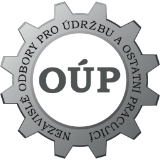WORKING TIME ACCOUNT – IS IT A WIN FOR THE EMPLOYEES?
The TMMCZ recently distributed the leaflet WORKING TIME ACCOUNT – key points & compensation as of 31/08/2022. This document presents arguments as to why the working time account (“KPD”) is beneficial for employees according to the TMMCZ. Is it really so? We don’t think so. That’s why we looked at KPD in detail.
- Does KPD ensure job security? Whether the company will, for example, terminate employment due to redundancy is up to it, and it can do so both in KPD and out of it. Outside of KPD, non-production shifts would not necessarily mean that the company would repeatedly lay off and hire permanent employees, because it would also have to repeatedly pay severance pay to employees, deal with mass layoffs, and cover up shortfalls with, for example, agency employees. It is true that the KPD allows the company greater flexibility in planning, however, the KPD does not guarantee that you will keep your job.
- Does KPD ensure income security? The Labor Code does not allow an employee to remain at zero just because the company is not producing. That would be the case even without KPD. In some cases, you could also be entitled to a wage compensation of 100 % of average earnings, which is more than the regular wage in KPD.
- Does the company provide income beyond of the applicable legislation? Yes, but this is only a slight change beside the Labor Code, according to which, in the case of a “super account”, it is sufficient to pay the employee 85% of the average monthly earnings every month and to pay him the rest once every 52 weeks. This rule in the law is robbing people. The company doesn’t follow it, it pays more than it should, thus compensating for this obvious unfairness so that you are no worse off. If there was no KPD, you would receive all wage components from the company according to the collective agreement and wage policy.
- Do employees always really get all the variable components of the salary? Not always. The company has introduced a rule, which OÚP disagree with. The point is that in the case of mandatory supplements to the so-called permanent salary in the amount of at least 85 % of the average monthly earnings, the performance bonus is reduced by these supplements. These cases happen in situations where the employee has exceptionally high average earnings in relation to what he is earning now, for example as a result of a previous secondment. We are currently working on this rule with the company.
- Does KPD have another hitch? With regard to the introduction of the “super account”, the employer can transfer up to 120 hours of overtime work (so-called plus shifts) to the next compensatory period, without you having the right to earned wages and overtime pay. Similarly, in the case of transfer of minus shifts and their compensation in the next equalization period, you do not have to receive wage compensation for an obstacle to work on the part of the employer.
- What would happen if the KPD did not continue from 1/9/2023? Nothing for us, because we still work in an uneven schedule of working hours. KPD does not only bring benefits to people, even if the company compensates for some of the disadvantages and presents that it is an advantage for people.

